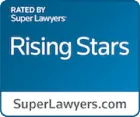We Are Strong Advocates for Employees Facing Discrimination in and around Tallahassee

You may have the right to pursue a claim against your employer to seek compensation and accountability if you have been unfairly treated, harassed, or retaliated against due to your race, sex, religious beliefs, disability, pregnancy, age, or another protected factor. The legal team at Cruz Law Firm, P.A., can review your case and help you take legal action.
With nearly two decades of combined legal experience, our attorneys know first-hand what it takes to protect the rights of hardworking people in Tallahassee. We are deeply familiar with the state and federal court systems, having taken over 100 cases to trial.
We are committed to providing every client with dedicated, effective legal representation and personalized service, no matter how complex the case. We understand how difficult it can be to face employment discrimination, which is why we are ready to do whatever we can to pursue the justice and accountability you deserve.
Contact Cruz Law today to discuss your case during a consultation with an employment discrimination attorney in Tallahassee.
What Is Employment Discrimination?
Employment discrimination occurs when a worker is treated differently or less favorably than other similarly situated workers due to some characteristic of the discriminated worker, such as their race, national origin, religious beliefs, sex, gender, or disability. Types of conduct that can constitute employment discrimination include:
- Unfair treatment, such as being denied a job, promotion, pay raises, or bonuses, being paid less than similarly-situated workers, being denied professional opportunities, or being assigned to less desirable tasks
- Harassment, which can include being subjected to offensive, alarming, or threatening behavior in the workplace
- Denial of reasonable changes to working conditions, including for a disability, medical condition, pregnancy, or religious belief
- Retaliation, which occurs when a worker is subjected to an adverse employment decision after they exercise their worker rights or assist a co-worker with asserting their rights
- Inappropriate questions about a worker’s medical or genetic information
What Are the Most Common Workplace Discrimination Claims?
Examples of common workplace discrimination claims include the following:
Age Discrimination
Engaging in unfair treatment or harassment of workers due to being over the age of 39, such as denying them job opportunities, pressuring them into retirement, or laying them off at higher rates than their younger counterparts.

Disability Discrimination and Failure to Accommodate
Discriminating against a worker who has a physical or cognitive disability or is perceived to have a disability, or failing to provide reasonable accommodations requested by a worker qualified to perform the essential functions of the job with the accommodation.

Gender Discrimination
Unfairly treating, harassing, or retaliating against a worker based on their sex or gender identity.

LGBTQIA Discrimination
Discriminating against a worker due to their sexual orientation.

Pregnancy Discrimination
Discriminating against or failing to accommodate an employee due to pregnancy or childbirth, including not offering maternal leave or failing to provide appropriate facilities for nursing or pumping mothers.

Race Discrimination
Discriminating against a worker due to their race, color, or national origin.

Religious Discrimination
Unfairly treating, harassing, or retaliating against a worker due to their religious beliefs or failing to provide reasonable accommodation for a worker’s religious beliefs.
Florida State and Federal Employment Discrimination Laws
Numerous state and federal laws protect Florida workers from employment discrimination. The Florida Civil Rights Act (FCRA) serves as the state’s primary anti-discrimination law. It prohibits employers from discriminating against prospective and current employees based on race, color, religion, national origin, sex, age, disability, marital status, sickle cell trait, or HIV-positive status.
Key federal laws that also protect workers from employment discrimination in Florida include:
- Title VII of the Civil Rights Act of 1964 – This prohibits employment discrimination based on an employee’s race, color, national origin, religious belief, sex, gender identity, or sexual orientation.
- Pregnancy Discrimination Act – This law prohibits employers from taking adverse employment actions against a worker due to pregnancy, childbirth, or medical conditions related to pregnancy or childbirth.
- Equal Pay Act – This act prohibits sex-based wage discrimination between male and female workers who perform jobs requiring substantially identical skill, effort, and duties.
- Americans with Disabilities Act (ADA) – The ADA prohibits discrimination against a qualified worker with a disability or a perceived disability and requires employers to provide reasonable accommodations for a worker’s disability, so long as the accommodation does not impose an undue burden on the employee.
- Age Discrimination in Employment Act – This law prohibits discrimination against workers aged 40 or older.
- Genetic Information Nondiscrimination Act – This act prohibits employers from using workers’ genetic information to make an employment decision, restricts the acquisition of workers’ genetic information, and strictly limits the lawful disclosure of workers’ genetic information.
How to Prove Discrimination at Work
Most work discrimination claims are proven through circumstantial evidence, which allows a judge or jury to infer that discrimination occurred. Establishing discrimination requires lawyers that handle discrimination cases to show that the employee is:
- A member of a protected class;
- Qualifies for their position; and
- Suffered an adverse employment action that other similarly situated workers who were not part of the protected class did not.
Even if there is evidence of these elements, the employer could present evidence of a legitimate reason for the adverse employment action. If the employer can provide a fair, non-discriminatory reason, the worker must show that the employer’s explanation is a pretext for discrimination. Evidence that can prove pretext includes offensive or discriminatory language used in the workplace or the timing of the adverse employment action.
However, some employment discrimination cases are proven with direct evidence. Direct evidence in workplace discrimination cases typically takes the form of written documents or statements. For example, in an age discrimination case, direct evidence might include statements from a worker’s superiors suggesting the worker retire or stating that younger workers are preferred for specific tasks.
Filing a Discrimination Claim
The process of filing a discrimination claim varies depending on what laws your employer has violated:
- Federal Laws – If your employer engaged in employment discrimination in violation of federal law, you can file a discrimination claim with the U.S. Equal Employment Opportunity Commission (EEOC). The EEOC enforces most federal laws prohibiting employment discrimination, including the ADA, Title VII, the Pregnancy Discrimination Act, the Equal Pay Act, the Age Discrimination in Employment Act, the Rehabilitation Act, and the Genetic Information Nondiscrimination Act. Under EEOC regulations, you must report an act of discrimination that violates federal law to the EEOC within 180 days of the adverse action. However, if the discrimination also violates state or local law, the filing deadline may be extended to 300 days.
- State Laws – If your employer engages in employment discrimination in violation of state law that does not fall under the jurisdiction of a federal or local agency, you can file a discrimination claim with the Florida Commission on Human Relations (FCHR).
How Long Do I Have to File an Employment Discrimination Claim?
You have 180 days to file an employment discrimination claim, also known as a charge of employment discrimination, with the EEOC. If the discrimination you face violates state or local law, the deadline may be extended to 300 days. After the EEOC investigates your claim, the agency may issue a notice of right to sue, which authorizes you to file an employment discrimination lawsuit in federal court. You have 90 days after receiving the notice of right to sue to file your lawsuit. FCHR claims must be filed within 365 days of the act of discrimination.
Types of Damages in a Job Discrimination Lawsuit
In a workplace discrimination lawsuit, you may be entitled to compensation for losses you suffered due to the discrimination. Damages or compensation that may be awarded in discrimination lawsuits include:
- Unpaid wages, including overtime, bonuses, and commissions
- Denied paid leave
- Lost earnings
- Job search expenses
- Emotional trauma or distress
- Reinstatement to your position
You may also be entitled to recover your court costs and legal fees if you prevail in your lawsuit.
How Can a Employment Discrimination Attorney Help with My Case?
Our employment discrimination law firm at Cruz Law Firm, P.A. can help you advocate for your rights and protect your interests after discrimination at work by:
- Investigating your claim to obtain evidence to prove that your employer engaged in discrimination, such as employment records, emails, text messages, or witness testimony.
- Calculating the financial losses you suffered from discrimination, including lost earnings or job search costs if you need to find a new job after being wrongfully terminated.
- Preparing and filing your EEOC or FCHR charges and communicating with agency officials on your behalf.
- Filing your employment discrimination lawsuit after you receive notice of your right to sue.
- Pursuing maximum compensation and justice for you, whether by reaching a settlement with your employer or advocating your case in court and at trial.
We Stand With You in Fighting Workplace Discrimination. Advocating for Employment Rights in Tallahassee.
If you face discrimination at work, the team at Cruz Law can review your case and evaluate your legal options for pursuing compensation and accountability from your employer. Our attorneys represent employees in Tallahassee, Jacksonville, and along the Florida Panhandle. Contact our Tallahassee employment discrimination law firm today to speak to a trusted legal professional.
(850) 701-8838
Our core values and mission are embodied in the acronym “Cruz C.A.R.E.S.” Here’s what it stands for:









